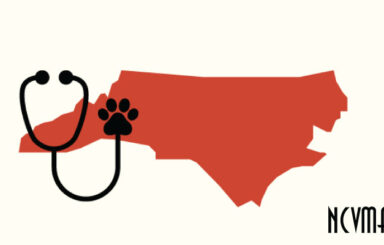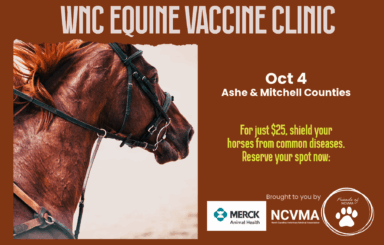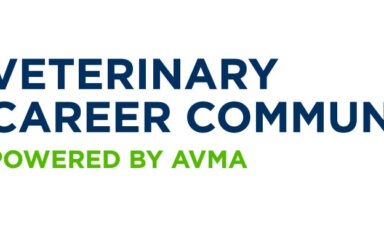The North Carolina Veterinary Medical Board released a new statement 3/26/2020 further clarifying the VCPR and telemedicine during COVID-19. This is pursuant to a recent statement from the FDA which issued guidance, for immediate implementation, that temporarily suspends the enforcement of certain aspects of the VCPR requirements. In the U.S., those federal requirements apply to extralabel drug use, the issuing of veterinary feed directives and the creation and use of certain veterinary biologics.
You may find the information on the NCVMB website, NCVMB; the NCVMA website, NCVMA ; and the NCVMA mobile app (under Links).
For your immediate full reference, we have copied the updated NCVMB statement below:
From the NCVMB: Covid-19, the Veterinary-Client-Patient-Relationship, and Telemedicine
The FDA has recently issued information regarding their rules and the utilization of telemedicine in veterinary medicine. This does not change the rules and regulations regarding the VCPR and telemedicine in the State of North Carolina (please see a description of the NCVMB’s requirements at the bottom of this page).
The FDA’s statement is: “In order to help veterinarians utilize telemedicine to address animal health needs during the COVID-19 pandemic, the FDA generally does not intend to enforce the animal examination and premises visit portion of the VCPR requirements relevant to the FDA regulations governing Extralabel Drug Use in Animals and Veterinary Feed Directive (VFD) drugs. This will allow veterinarians to prescribe drugs in an extra label manner or authorize the use of VFD drugs without direct examination of or making visits to their patients, which will limit human-tohuman interaction and potential spread of COVID-19 in the community.
Although the FDA intends to temporarily suspend certain federal VCPR requirements, veterinarians still need to consider state VCPR requirements that may exist in their practice area.”
From the NCVMB: Covid-19, the Veterinary-Client-Patient-Relationship, and Telemedicine
For a veterinarian to practice medicine (this includes telemedicine) in the State of North Carolina they need to first establish a veterinary-client-patient-relationship (VCPR).
A VCPR is established only when a veterinarian examines an animal in person, and is maintained by regular veterinary visits as needed to monitor an animal’s health. If a VCPR is established but a veterinarian does not regularly see the animal afterward, the VCPR is no longer valid and it would be illegal and unethical for a veterinarian to dispense or prescribe medications or recommend treatment without recently examining the patient.
A valid VCPR cannot be established online (virtually), via email, or over the phone. However, once a VCPR is established, it may be able to be maintained between medically necessary examinations via telephone or other methods; but it’s up to the veterinarian’s discretion to determine if this is appropriate and in the best interests of an animals’ health.
A VCPR is present when all of the following requirements are met:
-The veterinarian has assumed responsibility for making clinical judgments regarding the health of the patient, and the client has agreed to follow the veterinarians’ instructions.
-The veterinarian has sufficient knowledge of the patient to initiate at least a general or preliminary diagnosis of the patient’s medical condition. This means the veterinarian is personally acquainted with the keeping and care of the patient by virtue of a timely and medically appropriate examination of the patient
-The veterinarian is readily available for follow-up evaluation or has arranged for the following: veterinary emergency coverage, and continuing care and treatment.
-The veterinarian provides oversight of treatment, compliance and outcome.
-Patient records are maintained.
What is a “timely and medically appropriate examination of the patient by the veterinarian”
This time frame can vary greatly due to the age of the animal and existing health conditions. This decision can be made by the VCPR-DVM with the best interests of the client and patient in mind. The following are examples:
-A young healthy animal may only need to be seen once a year to establish a VCPR. However, an older animal will require more frequent examinations to ensure their health status.
-An animal with existing health problems such as epilepsy, heart disease, renal disease, etc. will require more frequent examinations to maintain a valid VCPR.
Within an established VCPR -A veterinarian may remotely gather essential veterinary medical information from the animal owner or other caretaker; access the patient’s medical records; and utilize patient information from a variety of sources (photos, videos, etc.).
Without an established VCPR -The veterinarian may provide general advice but must specifically stay clear of diagnosing, prognosing, or treating patients. Advice should not be specific to an individual animal, diagnosis or treatment. In addition to being helpful, use the time to acquaint the caller with the value of your practice and services and try to schedule an appointment for the caller if the case is urgent, or if not, for a time after the crisis has eased
You may also find the NCVMB’s statement regarding essential services/business and hospital protocol during this time, which aligns with the NCVMA’s position shared with members. Essential Business/COVID-19 Protocol



